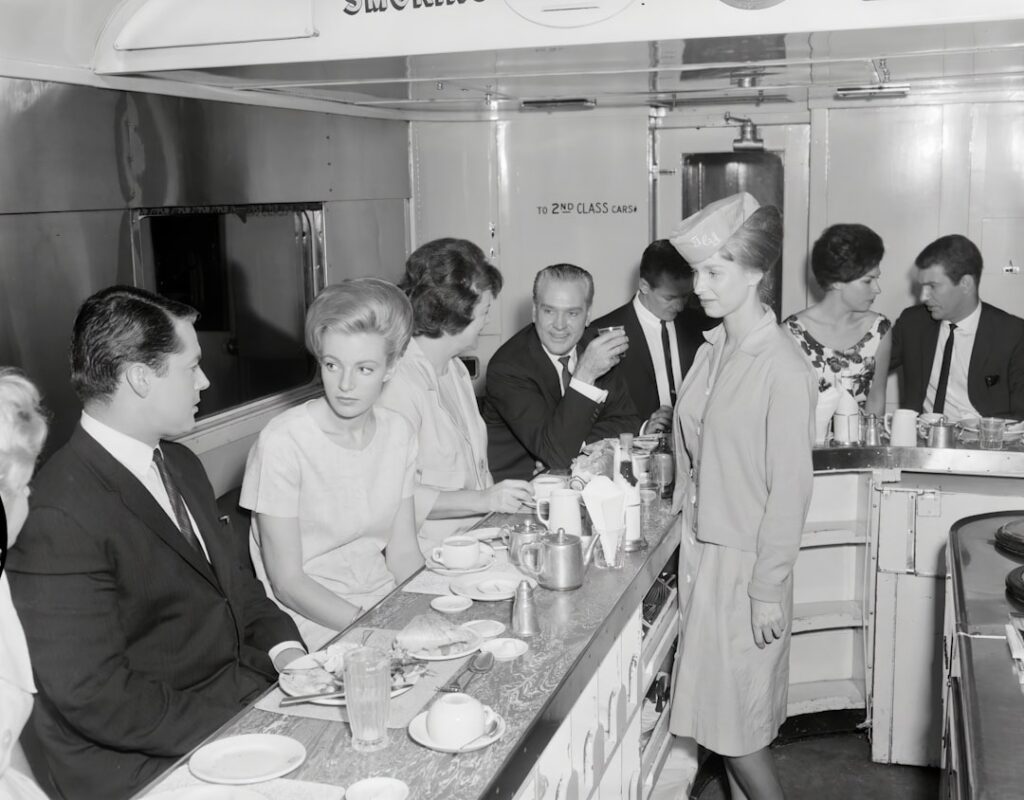
Story County, located in the heart of Iowa, is home to a bustling community and a diverse population. However, like many other counties across the United States, Story County also has its fair share of individuals who find themselves within the walls of the Story County Jail. The incarceration system in Story County is designed to not only punish individuals for their crimes but also to provide opportunities for rehabilitation and reintegration into society. The Story County Jail is a critical component of the county’s criminal justice system, housing individuals who are awaiting trial or serving short-term sentences. The facility is equipped to provide basic needs such as food, shelter, and medical care, but it also offers various programs aimed at addressing the root causes of criminal behavior and preparing individuals for life beyond incarceration. Understanding the daily routine of inmates, the challenges they face, and the resources available to them is crucial in comprehending the complexities of the incarceration system in Story County.
Key Takeaways
- Story County’s incarceration system plays a crucial role in the criminal justice system, housing individuals awaiting trial and those serving short-term sentences.
- Inmates in Story County Jail follow a strict daily routine that includes meals, recreation time, and access to educational and vocational programs.
- Inmates in Story County face challenges such as overcrowding, limited access to resources, and the stigma of incarceration upon release.
- Story County offers rehabilitation and education programs to inmates, including GED classes, substance abuse counseling, and vocational training.
- Mental health and healthcare services are available to inmates in Story County, including access to counseling, medication, and medical treatment.
- Family and community support is crucial for incarcerated individuals in Story County, providing a sense of connection and stability during their time in jail.
- After release, reentry programs and support services help former inmates reintegrate into society, offering assistance with housing, employment, and access to resources for a successful transition.
The Daily Routine of Inmates in Story County Jail
The daily routine of inmates in Story County Jail is structured and regimented, providing a sense of order and predictability within the confines of incarceration. Inmates typically wake up early in the morning, often before sunrise, and are required to participate in a headcount to ensure that all individuals are present and accounted for. Following this, inmates may have access to breakfast, which is often a simple and basic meal. Throughout the day, inmates may engage in various activities such as educational programs, vocational training, or work assignments within the facility. These activities are designed to occupy their time constructively and provide opportunities for personal growth and development. Inmates also have access to outdoor recreation time, allowing them to get fresh air and exercise. However, the daily routine is also marked by periods of confinement within their cells, during which inmates may experience feelings of isolation and boredom. This structured routine is intended to maintain order and discipline within the facility but can also contribute to the mental and emotional challenges faced by inmates.
The daily routine of inmates in Story County Jail can be monotonous and challenging, as individuals navigate the constraints of incarceration while striving to maintain a sense of purpose and hope for the future. The lack of autonomy and freedom can weigh heavily on inmates, impacting their mental well-being and overall outlook on life. Additionally, the environment within the facility can be tense and fraught with interpersonal conflicts, further complicating the daily experience of inmates. Despite these challenges, many inmates strive to make the most of their time by participating in educational and vocational programs, seeking solace in religious or spiritual activities, or finding support through connections with fellow inmates. The daily routine within Story County Jail is a complex interplay of structure and adversity, shaping the lived experiences of those within its walls.
Challenges Faced by Inmates in Story County
Inmates in Story County Jail face a myriad of challenges that can significantly impact their well-being and prospects for successful reintegration into society. One of the most pressing challenges is the lack of access to resources and opportunities for personal growth and development. Many inmates come from disadvantaged backgrounds and have experienced limited educational and vocational opportunities prior to incarceration. As a result, they may struggle to acquire new skills or pursue meaningful activities while in jail. Additionally, the stigma associated with incarceration can create barriers to employment, housing, and social support upon release, further exacerbating the challenges faced by former inmates. Moreover, the prevalence of substance abuse and mental health issues among inmates adds another layer of complexity to their experiences within the criminal justice system. Many individuals enter Story County Jail with unmet mental health needs or substance abuse disorders, which can be exacerbated by the stress and trauma of incarceration.
Another significant challenge faced by inmates in Story County is the strain on familial and community relationships. Incarceration can disrupt family dynamics and strain relationships with loved ones, leading to feelings of isolation and abandonment. Children of incarcerated parents may experience emotional distress and instability, further perpetuating cycles of intergenerational trauma and disadvantage. Additionally, the lack of community support for individuals involved in the criminal justice system can hinder their prospects for successful reentry into society. Without a strong support network, former inmates may struggle to access essential resources such as housing, employment, and healthcare, increasing their risk of recidivism. These challenges underscore the complex web of factors that contribute to the experiences of inmates in Story County Jail and highlight the need for comprehensive support systems within and beyond the confines of incarceration.
Rehabilitation and Education Programs Available to Inmates
| Program Name | Description | Duration |
|---|---|---|
| GED Program | Provides education to earn a high school equivalency diploma | 6 months |
| Vocational Training | Offers skills training in various trades such as carpentry, plumbing, and welding | 1-2 years |
| Substance Abuse Counseling | Support and treatment for inmates struggling with addiction | Varies |
| Life Skills Workshops | Teaches essential skills for successful reintegration into society | 3 months |
Story County Jail offers a range of rehabilitation and education programs aimed at addressing the underlying factors contributing to criminal behavior and preparing individuals for successful reintegration into society. These programs are designed to provide inmates with opportunities for personal growth, skill development, and self-improvement during their time in incarceration. Educational programs such as GED preparation classes, literacy courses, and vocational training workshops are available to inmates who seek to enhance their academic and professional skills. These programs not only equip individuals with valuable knowledge and competencies but also instill a sense of purpose and hope for the future. Additionally, Story County Jail offers counseling services, substance abuse treatment programs, and mental health support to address the complex needs of inmates. These resources are critical in addressing underlying issues that may contribute to criminal behavior and promoting holistic well-being among incarcerated individuals.
Rehabilitation programs within Story County Jail also encompass cognitive-behavioral interventions, life skills training, and reentry preparation workshops. These initiatives aim to foster personal responsibility, decision-making skills, and positive behavior change among inmates. By addressing attitudes and behaviors that may lead to criminal conduct, these programs seek to reduce recidivism rates and promote successful reintegration into society upon release. Furthermore, religious and spiritual support services are available to inmates who seek guidance, solace, or connection with their faith communities during their time in incarceration. These programs play a crucial role in supporting the diverse needs and aspirations of individuals within Story County Jail, offering pathways for personal transformation and growth.
Mental Health and Healthcare Services for Inmates
The provision of mental health and healthcare services for inmates in Story County Jail is essential in addressing the complex needs of individuals involved in the criminal justice system. Many inmates enter incarceration with unmet mental health needs or chronic medical conditions that require ongoing attention and care. The jail’s healthcare services encompass medical assessments, treatment for acute and chronic conditions, medication management, and access to emergency care when needed. Additionally, mental health services such as counseling, therapy, and psychiatric support are available to address the emotional and psychological well-being of inmates. These services play a critical role in mitigating the impact of trauma, stress, and mental illness within the confines of incarceration.
Furthermore, Story County Jail prioritizes suicide prevention efforts through comprehensive risk assessments, mental health screenings, and suicide intervention protocols. The facility is committed to ensuring the safety and well-being of all individuals in its care by providing a supportive environment for those experiencing mental health crises or emotional distress. Additionally, collaboration with community mental health providers and advocacy organizations allows for continuity of care upon an inmate’s release from jail. This holistic approach to mental health and healthcare services underscores the commitment of Story County Jail to addressing the diverse needs of its inmate population and promoting overall well-being within the criminal justice system.
Family and Community Support for Incarcerated Individuals

Family and community support play a crucial role in mitigating the challenges faced by incarcerated individuals in Story County Jail and promoting successful reentry into society upon release. Maintaining connections with loved ones through visitation, phone calls, letters, or video communication can provide emotional support and stability for inmates during their time in incarceration. These connections help alleviate feelings of isolation and loneliness while fostering a sense of belonging and connection to the outside world. Additionally, family engagement initiatives within Story County Jail aim to strengthen familial relationships through parenting classes, communication workshops, and support groups for relatives of incarcerated individuals.
Community support for incarcerated individuals extends beyond familial relationships to encompass reentry programs, volunteer opportunities, mentorship initiatives, and advocacy efforts aimed at promoting successful reintegration into society. Reentry programs within Story County Jail provide individuals with essential resources such as housing assistance, employment readiness training, financial literacy education, and access to healthcare services upon release. These programs are designed to facilitate a smooth transition from incarceration to community living while reducing barriers to successful reentry. Furthermore, volunteer organizations and community partners play a vital role in offering mentorship, guidance, and support to former inmates as they navigate the challenges of rebuilding their lives post-incarceration. The collective efforts of families, communities, and advocacy groups are instrumental in fostering resilience and empowerment among incarcerated individuals in Story County Jail.
Life After Release: Reentry Programs and Support for Former Inmates
Life after release from incarceration presents a unique set of challenges for former inmates as they strive to rebuild their lives and reintegrate into society. Reentry programs within Story County Jail are designed to provide individuals with essential resources such as housing assistance, employment readiness training, financial literacy education, and access to healthcare services upon release. These programs aim to address the multifaceted needs of former inmates while reducing barriers to successful reentry into their communities. By equipping individuals with practical skills, knowledge, and support networks, reentry programs play a crucial role in promoting stability and self-sufficiency post-incarceration.
Furthermore, ongoing support for former inmates is essential in facilitating their transition back into society. Community-based organizations, advocacy groups, faith communities, and volunteer initiatives offer mentorship opportunities, peer support networks, and guidance for individuals navigating life after release from incarceration. These forms of support help former inmates access essential resources such as employment opportunities, educational programs, healthcare services, housing assistance, and legal advocacy. Additionally, advocacy efforts aimed at reducing barriers to reentry such as stigma, discrimination, or systemic inequalities are critical in promoting equity and justice for individuals involved in the criminal justice system. The collective efforts of reentry programs, community support networks, and advocacy initiatives contribute to fostering resilience and empowerment among former inmates as they embark on their journey toward a brighter future beyond incarceration.
In conclusion, understanding the complexities of Story County’s incarceration system requires an exploration of the daily routine of inmates, the challenges they face, the resources available to them within the facility, as well as support systems for successful reentry into society post-incarceration. The structured routine within Story County Jail provides order but also presents challenges such as isolation and boredom for inmates. The lack of access to resources for personal growth coupled with strained familial relationships adds another layer of complexity to their experiences within incarceration. However, rehabilitation programs offer hope for personal growth while mental health services address emotional well-being within the facility.
Upon release from incarceration former inmates face challenges such as stigma associated with their past involvement with the criminal justice system but reentry programs aim at providing them with essential resources such as housing assistance or employment readiness training while ongoing community support facilitates their transition back into society. The collective efforts of families communities advocacy groups play a crucial role in fostering resilience empowerment among incarcerated individuals both during their time in jail as well as post-incarceration as they strive towards rebuilding their lives reintegrating into society successfully.
Upon release from incarceration, former inmates face challenges such as stigma associated with their past involvement with the criminal justice system. However, reentry programs aim at providing them with essential resources such as housing assistance or employment readiness training, while ongoing community support facilitates their transition back into society. The collective efforts of families, communities, and advocacy groups play a crucial role in fostering resilience and empowerment among incarcerated individuals, both during their time in jail and post-incarceration, as they strive towards rebuilding their lives and reintegrating into society successfully.
If you’re interested in learning more about the experiences of inmates in Story County, you may want to check out this article on colouroflondon.com. The article provides insight into the challenges and opportunities faced by inmates in the county, shedding light on their experiences and the impact of incarceration on their lives. It’s a thought-provoking read that offers a deeper understanding of the issues surrounding the inmate population in Story County.
FAQs
What is the Story County Jail?
The Story County Jail is a correctional facility located in Nevada, Iowa. It houses inmates who are awaiting trial or serving sentences for misdemeanor and felony offenses.
How can I find information about inmates in Story County Jail?
You can find information about inmates in Story County Jail by visiting the Story County Sheriff’s Office website or contacting the jail directly. Inmate information may include booking details, charges, bond amounts, and release dates.
Can I visit an inmate at Story County Jail?
Yes, visitors are allowed to visit inmates at Story County Jail. However, there are specific visitation hours and rules that must be followed. It is recommended to contact the jail for more information on visitation policies.
How can I send money to an inmate at Story County Jail?
You can send money to an inmate at Story County Jail by using the jail’s approved methods, such as money orders or electronic deposits through the jail’s website or a third-party service provider.
What are the contact details for Story County Jail?
The contact details for Story County Jail are as follows:
Story County Jail
1315 South B Avenue
Nevada, IA 50201
Phone: (515) 382-7464


